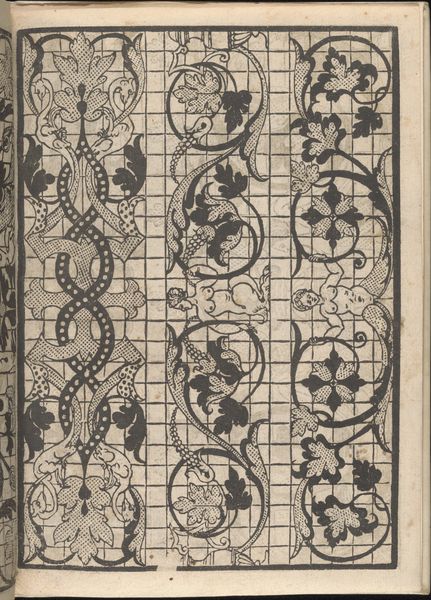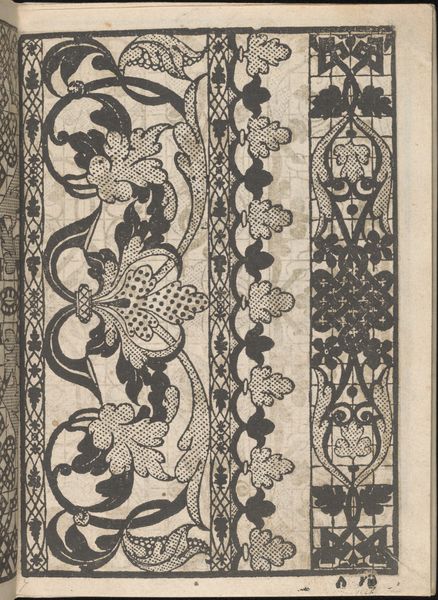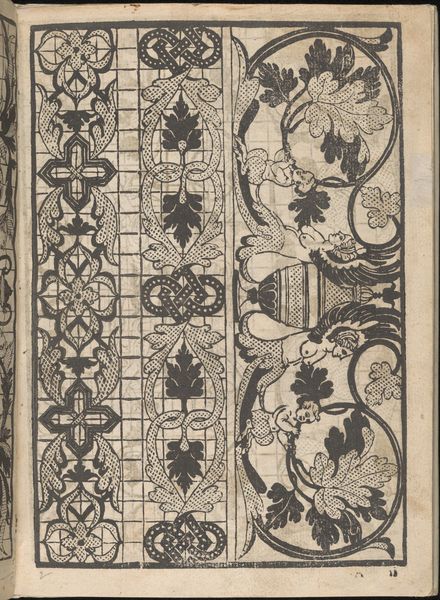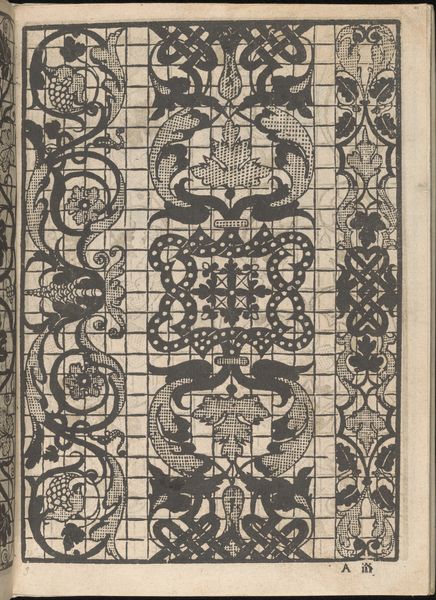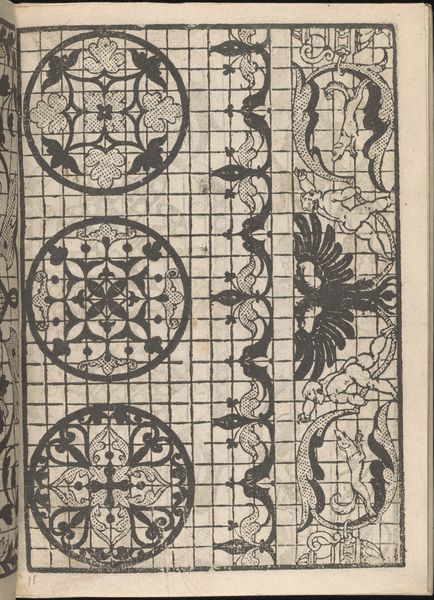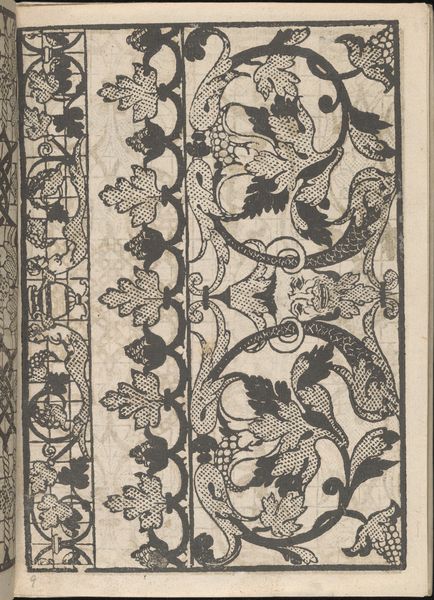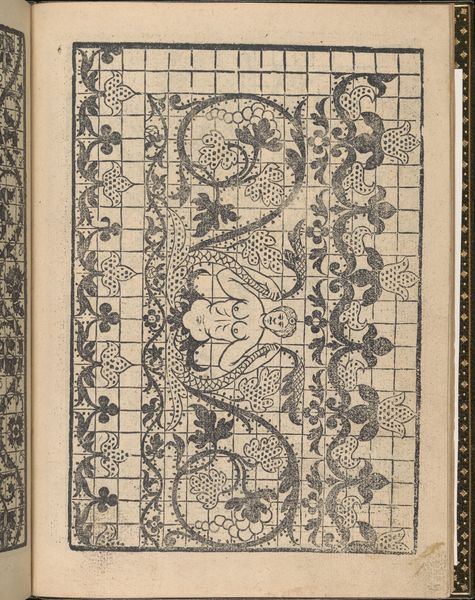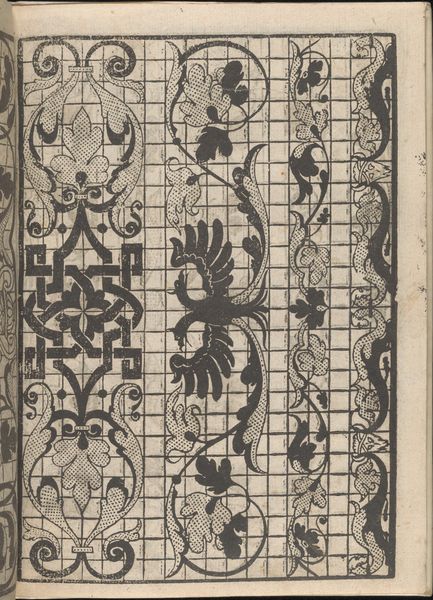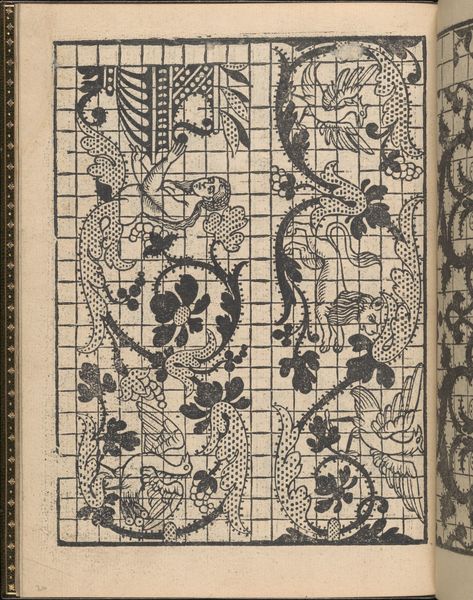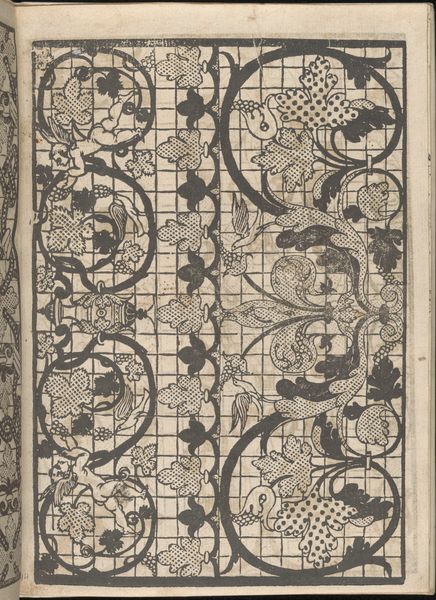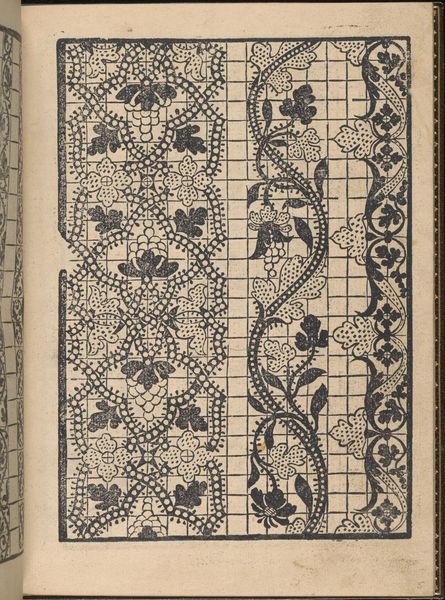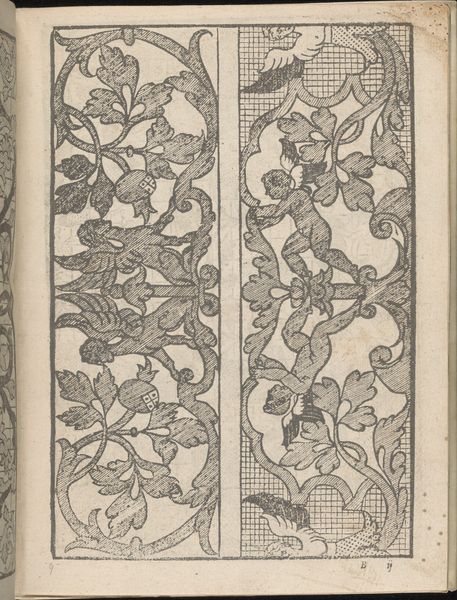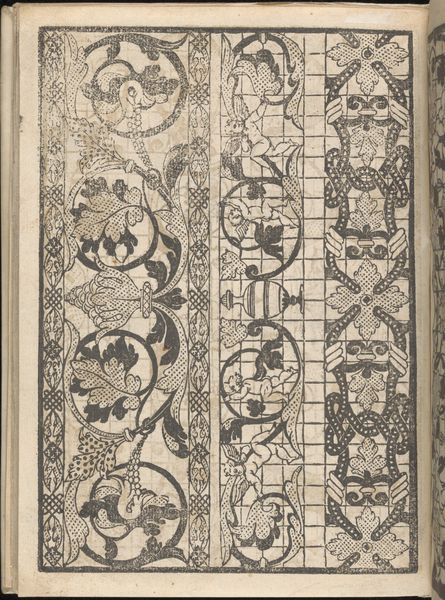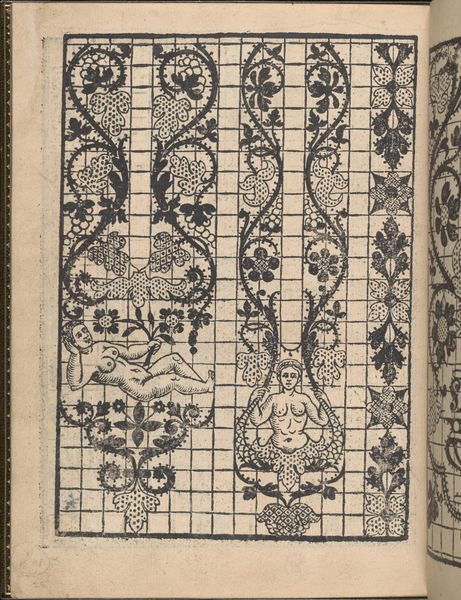
Splendore delle virtuose giovani, page 3 (verso) 1564
0:00
0:00
drawing, print, ink, engraving
#
drawing
#
pen drawing
# print
#
book
#
figuration
#
11_renaissance
#
ink
#
geometric
#
line
#
decorative-art
#
italian-renaissance
#
italy
#
engraving
#
miniature
Dimensions: Overall: 7 1/2 x 5 1/2 in. (19 x 14 cm)
Copyright: Public Domain
Curator: Splendore delle virtuose giovani, or "Splendor of Virtuous Young Women," an engraving from 1564 by Iseppo Foresto. It resides here at the Metropolitan Museum. Editor: What strikes me immediately is how graphic it is—high contrast, tight composition. The meticulous detailing is quite captivating; it's like looking at a maze, isn't it? Curator: In many ways, that’s precisely the effect it was intended to produce. The book’s title itself evokes the aspirations of young women in Renaissance Italy. These weren't mere decorations; these designs were deeply embedded in societal ideals. Editor: So these intertwining motifs, the geometric grids overlaid with organic forms like the leaves… they visually embody virtue itself? I find the figure peeking out, embedded within the frame of scrolling vines especially intriguing. Curator: Exactly. The geometric grid implies order and discipline, a foundation upon which the ‘virtuous’ could cultivate grace, expressed through the swirling foliage, referencing classical motifs, and that human form, of course. It’s about control, cultivation and containment. Remember, this era heavily scrutinized women’s behavior. Editor: And that repeated motif with the cherubs amongst grapes - suggesting fecundity? Curator: Possibly. Grapes held religious and symbolic significance relating to blood, sacrifice, rebirth and virtue in and of themselves. We are looking at a sophisticated visual argument—a miniature world ripe with possibilities. Editor: What a beautiful synthesis of form and intended function! Analyzing this page allows one to see that even ‘decoration’ could be conceptually dense during the Italian Renaissance. Curator: Indeed, tracing these linear designs connects us to a worldview invested in crafting very specific messages. Each deliberate mark reveals an idea, passed down and made visible once again. Editor: Yes, after seeing it more closely, I understand how design is inseparable from that period's psychological imprinting.
Comments
No comments
Be the first to comment and join the conversation on the ultimate creative platform.
